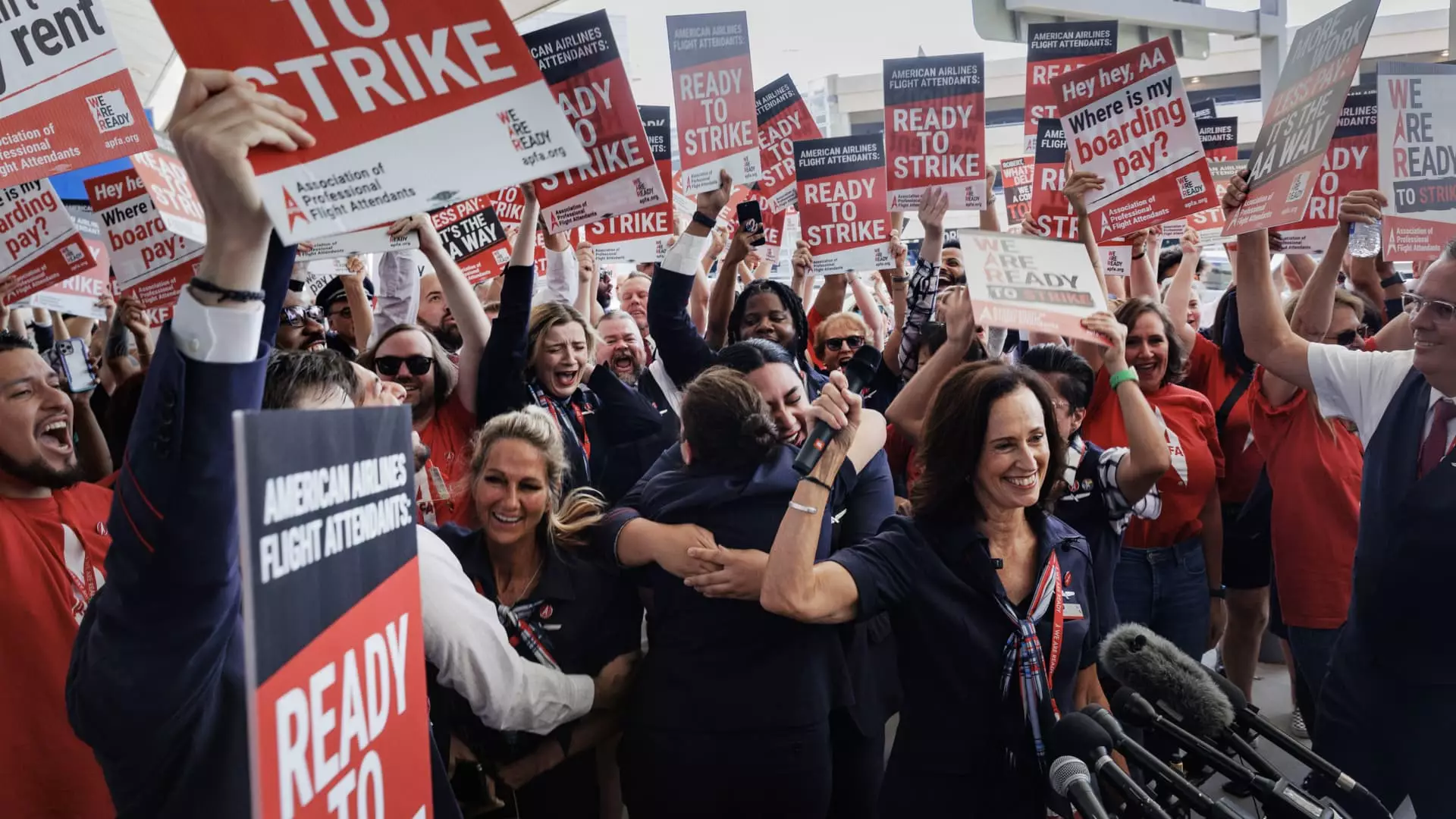In a remarkable turn of events for the aviation industry, flight attendants at American Airlines have decisively approved a transformative five-year labor agreement. This contract, backed by an impressive 87% of voting union members, is poised to significantly elevate the financial well-being of the airline’s cabin crew. Scheduled to take effect at the beginning of October, the agreement promises wage increases of up to 20.5% along with retroactive pay – a welcome reprieve for flight attendants who have long endured sluggish negotiations amidst rising living costs.
Leading the charge for these essential workers is the Association of Professional Flight Attendants, presided over by Julie Hedrick. In her remarks following the contract approval, Hedrick lauded the agreement as a “significant milestone.” The emphasis on immediate financial relief during a tumultuous economic period highlights the crucial role unions play in advocating for workers’ rights. With around 28,000 members, the American Airlines cabin crew represents the largest segment of unionized labor at the Fort Worth-based airline.
The journey to this agreement was far from smooth. American Airlines’ leadership faced heightened pressure as the threat of strikes loomed large. Government officials, including Transportation Secretary Pete Buttigieg and Labor Secretary Julie Su, were directly involved in the mediation process. Their participation, alongside more than 160 lawmakers advocating for swift resolutions across the airline sector, underscores the broader implications of labor negotiations in the current economic climate. The successful contract is not just a victory for the flight attendants; it serves as a benchmark for similar negotiations within the industry.
The conclusion of these negotiations sheds light on broader industry movements where workers across various sectors are demanding better pay and improved working conditions. Following the disruptions triggered by the COVID-19 pandemic, flight attendants joined other labor forces, including those in the auto and entertainment industries, in advocating for livable wages. The context of ongoing negotiations at United Airlines and recent rejections of tentative agreements by Alaska Airlines cabin crews illustrates the challenging environment for labor relations in aviation.
As American Airlines enjoys this newly established agreement, the focus now shifts to ongoing negotiations and labor relations across the airline industry. The increasingly assertive posture of workers signals a potential turning point, where unions may capitalize on public sentiment to secure better outcomes. Meanwhile, other companies, like Boeing, are grappling with their own labor challenges, as significant numbers of workers consider rejecting proposed contracts despite attractive wage hikes. The atmosphere is ripe for strikes, which could further disrupt operations and amplify calls for fair labor practices.
The American Airlines flight attendants’ contract signifies much more than wage increases; it reflects a growing movement towards equitable treatment for all workers within the aviation sector and beyond. As the industry navigates these developments, the ripple effects could transform labor relations for years to come.

